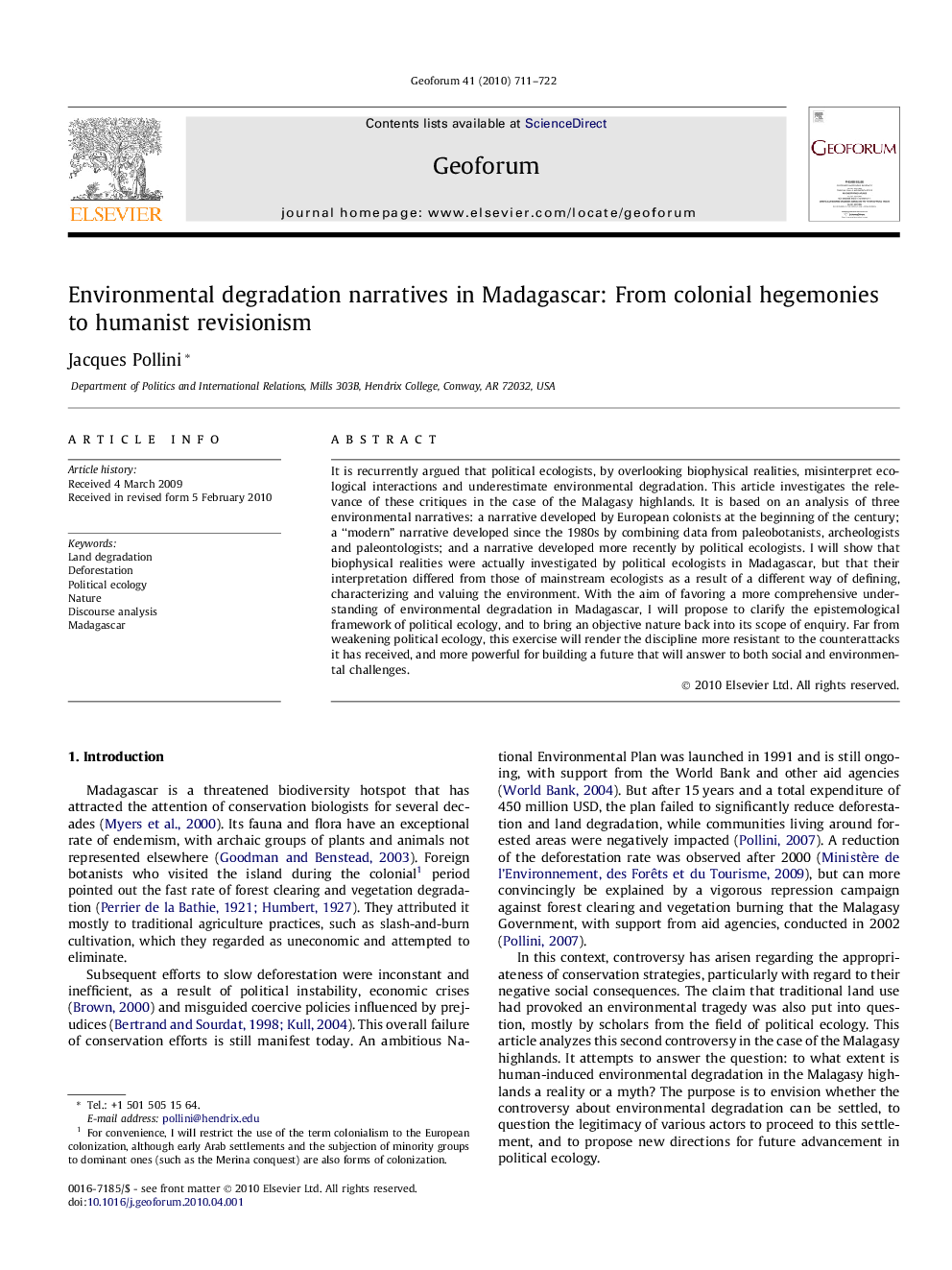| Article ID | Journal | Published Year | Pages | File Type |
|---|---|---|---|---|
| 5074453 | Geoforum | 2010 | 12 Pages |
Abstract
It is recurrently argued that political ecologists, by overlooking biophysical realities, misinterpret ecological interactions and underestimate environmental degradation. This article investigates the relevance of these critiques in the case of the Malagasy highlands. It is based on an analysis of three environmental narratives: a narrative developed by European colonists at the beginning of the century; a “modern” narrative developed since the 1980s by combining data from paleobotanists, archeologists and paleontologists; and a narrative developed more recently by political ecologists. I will show that biophysical realities were actually investigated by political ecologists in Madagascar, but that their interpretation differed from those of mainstream ecologists as a result of a different way of defining, characterizing and valuing the environment. With the aim of favoring a more comprehensive understanding of environmental degradation in Madagascar, I will propose to clarify the epistemological framework of political ecology, and to bring an objective nature back into its scope of enquiry. Far from weakening political ecology, this exercise will render the discipline more resistant to the counterattacks it has received, and more powerful for building a future that will answer to both social and environmental challenges.
Related Topics
Social Sciences and Humanities
Economics, Econometrics and Finance
Economics and Econometrics
Authors
Jacques Pollini,
